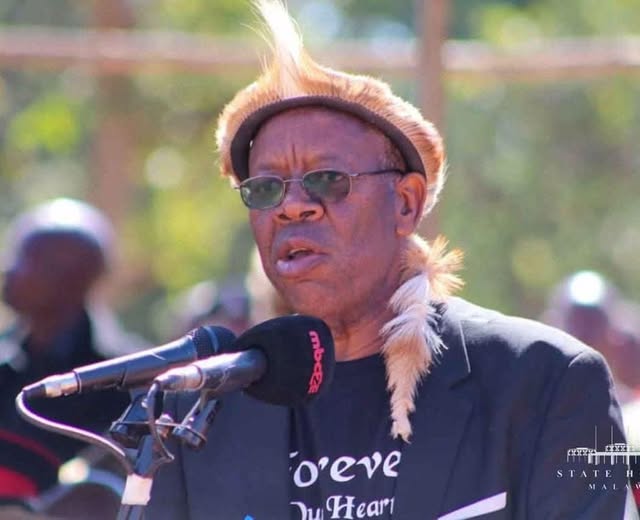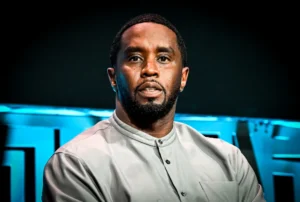
In a compelling turn of events surrounding the tragic passing of the late Dr. Saulosi Klaus Chilima, elder brother Dr. Ben Chilima has issued a firm request to the government to halt the construction of a memorial tombstone at Nthungwa in Chikangawa Forest. The development follows a series of unresolved questions and emotional turmoil that the Chilima family is still grappling with, as they continue to seek what they describe as “real answers” about the circumstances surrounding the untimely death of their beloved family member.
The late Dr. Saulosi Klaus Chilima was not only a figure of intellectual and social influence in Malawi, but also a symbol of hope and leadership. His death has left an unhealable wound in the hearts of many, especially within his family circle. What was expected to be a period of national mourning and unity has instead become a source of contention between the bereaved family and the government, with the matter now inching toward potential legal confrontation.
A Family’s Plea for Transparency and Truth
In his public statement, Dr. Ben Chilima expressed deep dissatisfaction with the government’s handling of the post-mortem process and the general narrative surrounding his brother’s death. He stated clearly that before any form of permanent memorial can be established, there must be thorough transparency, accountability, and disclosure of all facts related to the circumstances of Saulosi’s demise.
“We are not ready to accept monuments before the truth,” he emphasized. “This is not a matter of ceremony; it is a matter of justice.”
According to sources close to the family, the Chilimas feel that vital details about Dr. Saulosi’s death have been withheld, miscommunicated, or simply ignored. This has fueled speculation among the public and drawn sympathy from those who also question the official explanations presented thus far.
Legal Action on the Horizon
In a bold assertion of their legal rights, Dr. Ben Chilima stated that the family is prepared to seek a court injunction should the government proceed with the construction of the tombstone against their wishes. Legal experts in Malawi have noted that such a move, while unprecedented in cases involving state memorials, is well within the legal rights of the family if the tombstone is being built on what they consider private or sacred family ground.
If the injunction is filed and granted, it could set a precedent for how the government handles posthumous recognitions and memorials, especially in instances where there is opposition from the deceased’s family.
Nthungwa vs. Nsipe: The Debate Over the Memorial Site
Another point of contention is the location of the memorial service. The government reportedly plans to honor Dr. Saulosi Chilima with a tombstone at Nthungwa in Chikangawa Forest, a place that presumably holds national or symbolic significance. However, the Chilima family has declared that Nsipe in Ntcheu District their home district—is the only legitimate and authorized site for any memorial events.
According to the family, a single memorial service has already been organized in Nsipe, and any attempts to hold a separate ceremony or construct a monument elsewhere would be not only disrespectful but divisive. The family maintains that this decision is in line with Dr. Saulosi’s wishes and is backed by cultural and spiritual considerations that must be respected.
“This isn’t just about geography,” a family spokesperson commented. “It’s about honoring Saulosi in a way that reflects who he was and how he lived, and where his spirit belongs.”
Public Sentiment and National Response
Public reaction to the Chilima family’s stance has been mixed but generally sympathetic. Many citizens believe that the government should prioritize uncovering the truth behind the tragic death before focusing on public displays of tribute. Social media platforms and radio call-in shows have been abuzz with discussions, with hashtags like #JusticeForSaulosi and #LetTheFamilyLead trending across Malawi.
Community leaders and civil society organizations have also weighed in, urging the government to engage in meaningful dialogue with the family rather than taking unilateral action. Several advocacy groups have even offered to mediate between the two parties to prevent a public fallout.
“There is nothing wrong with honoring a fallen hero,” one NGO leader said. “But it must be done the right way, and with the full blessing of the family.”
The Need for National Healing
Beyond the immediate controversy lies a deeper issue: the nation’s struggle to handle grief and loss in a dignified, transparent, and inclusive manner. The debate over Dr. Saulosi Chilima’s memorial highlights the growing need for a framework that respects both national interests and personal family values.
Analysts say that while the government may have good intentions in honoring the late Dr. Chilima, it must also be sensitive to the wishes of his next of kin and the wider cultural context. In many African societies, the mourning process is deeply rooted in tradition, and any deviation without consent is viewed as a serious violation.
For now, the ball is in the government’s court. Will they choose to respect the Chilima family’s wishes and halt construction of the memorial tombstone? Or will they press on, potentially igniting a legal and cultural standoff?
What’s clear is that the matter is far from over. As the family continues its quest for “real answers,” Malawians wait with bated breath for clarity, closure, and, most importantly, justice.





